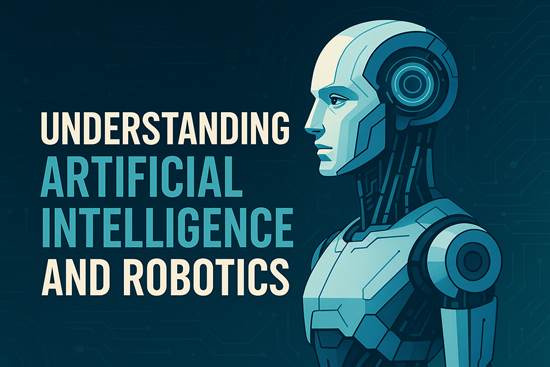Paragraph 1: Bridging Policy and Frontier Tech in AI and Robotics
The Understanding Artificial Intelligence and Robotics program, an 8-week intensive training initiative, is designed to equip senior policymakers, analysts, and practitioners with the necessary knowledge to navigate the complex intersection of geopolitics, technology, and ethics in the realm of AI and robotics. Developed by a consortium of international institutions, including IFIMES, SilkRoad 4.0, and the European Perspectives Scientific Journal, the program aims to translate innovation into effective implementation, enabling both public and private sectors to anticipate and respond to the evolving impact of AI on peace, development, and global order. The program’s diverse network of partners, including D-8, THC, ICCD, and others, underscores its commitment to a multi-regional and interdisciplinary approach. Furthermore, it serves as a foundational pillar for the forthcoming Global Academy for Geo-Politico-Tech Futures (GPTF), highlighting its long-term vision for shaping future leadership in the technology policy space.
Paragraph 2: Deep Dive into AI Governance Challenges
The program’s fourth session offered a comprehensive exploration of emerging challenges in AI governance, from security frameworks and data sovereignty to algorithmic bias and AI diplomacy. Experts from across the AI ecosystem, including government advisors, industry innovators, and academic researchers, provided a multi-faceted perspective on the implications of AI and robotics in today’s multipolar world. Rt Hon Geoff Hoon, former UK Secretary of Defense, addressed the strategic implications of AI for global security, emphasizing the need for democratic values to be embedded in AI systems and calling for international cooperation to prevent the unchecked militarization of AI. Dr. Richard Hill, President of the Association for Proper Internet Governance (APIG), offered a critical analysis of the fragmented landscape of global telecommunications and internet governance, highlighting the regulatory gaps surrounding dominant digital platforms and the historical context of evolving network standards and sovereignty.
Paragraph 3: Navigating the Geopolitics of Technology and Investment
Dr. Davit Sahakyan, former Deputy Minister of High-Tech Industry of Armenia, presented a data-driven overview of global investment trends, emphasizing the dominance of AI in venture capital and the emergence of generative AI, robotics, and cybersecurity as key areas of focus. He outlined future economic scenarios shaped by deep tech and geopolitical shifts, highlighting the strategic importance of aligning investment, innovation, and policy to foster sustainable growth in an AI-driven world. Discussions further explored the impact of AI on the labor market and the need for adaptive learning models to prepare individuals for the changing demands of the future workforce. The interplay between technological advancements and geopolitical dynamics, as well as the urgency for proactive educational initiatives, formed a core theme of this segment.
Paragraph 4: Historical Perspectives on Technological Governance
Dr. Hill provided a historical overview of the International Telecommunication Union (ITU), tracing its evolution from standardizing telegraphy in 1865 to its contemporary role in managing complex projects like satellite megaconstellations. He emphasized the ITU’s historical importance in harmonizing telephony pricing, regulating wireless spectrum, and allocating satellite orbits, illustrating how historical events like the Titanic disaster have shaped its mandate. His analysis highlighted the shifting roles of various standardization bodies and the changing landscape of internet governance in the wake of deregulation and the rise of U.S. technological dominance. Dr. Hill also critiqued current internet economics, dominated by data-driven advertising monopolies, and advocated for greater regulatory harmonization, particularly in mobile network standards.
Paragraph 5: The Human Factor in an AI-Driven World
The program’s focus extended beyond purely technical discussions to encompass the crucial role of human agency in an AI-driven world. Discussions highlighted the importance of ethical considerations in AI development and deployment, the need for human oversight in critical decision-making processes, and the evolving relationship between human intelligence and artificial intelligence. Dr. Sahakyan emphasized the concept of AI as a "co-intelligence partner" rather than a replacement for human capabilities, particularly in situations requiring moral judgment and contextual understanding. Dr. Philippe Reinisch, founder of SilkRoad 4.0, showcased practical applications of AI tools for enhancing meeting productivity, demonstrating the capabilities of platforms like Fathom AI and ChatGPT for transcription and summarization. He also emphasized the importance of user training and customization in optimizing AI tool performance.
Paragraph 6: Shaping the Future of AI and Robotics
The Understanding Artificial Intelligence and Robotics program ultimately aims to empower participants to proactively shape the future of AI and its impact on society. By fostering dialogue and collaboration among policymakers, experts, and practitioners from diverse backgrounds, the program seeks to bridge the gap between technological innovation and effective governance frameworks. The sessions covered not only the technical aspects of AI and robotics but also the ethical, geopolitical, and economic dimensions, providing a holistic perspective on the challenges and opportunities presented by these transformative technologies. The program’s commitment to an inclusive approach, with sponsored participation from developing countries, reflects its recognition that building a shared global intelligence on technology and peace is essential for navigating the complexities of the AI era. The ongoing conversations and insights generated by the program are crucial for shaping the rules of engagement in a world increasingly defined by AI and robotics.


